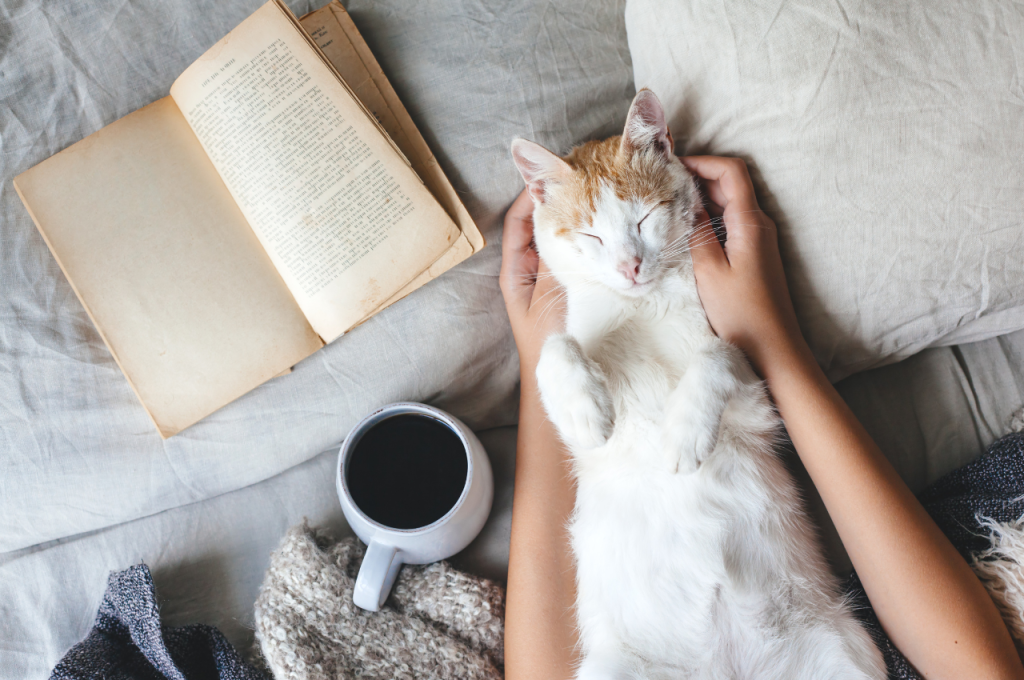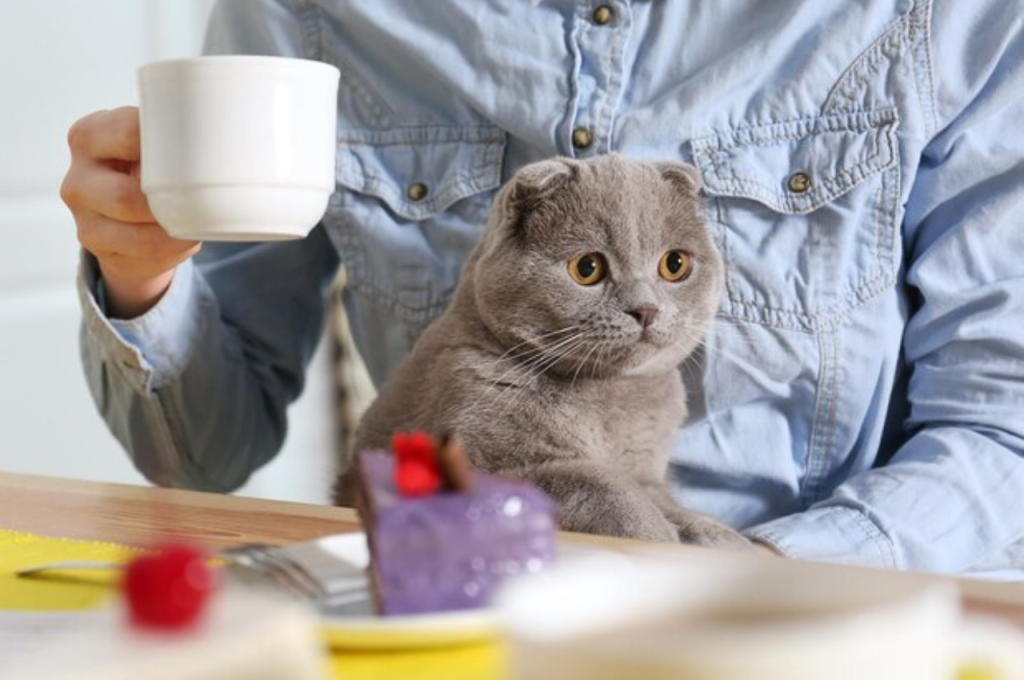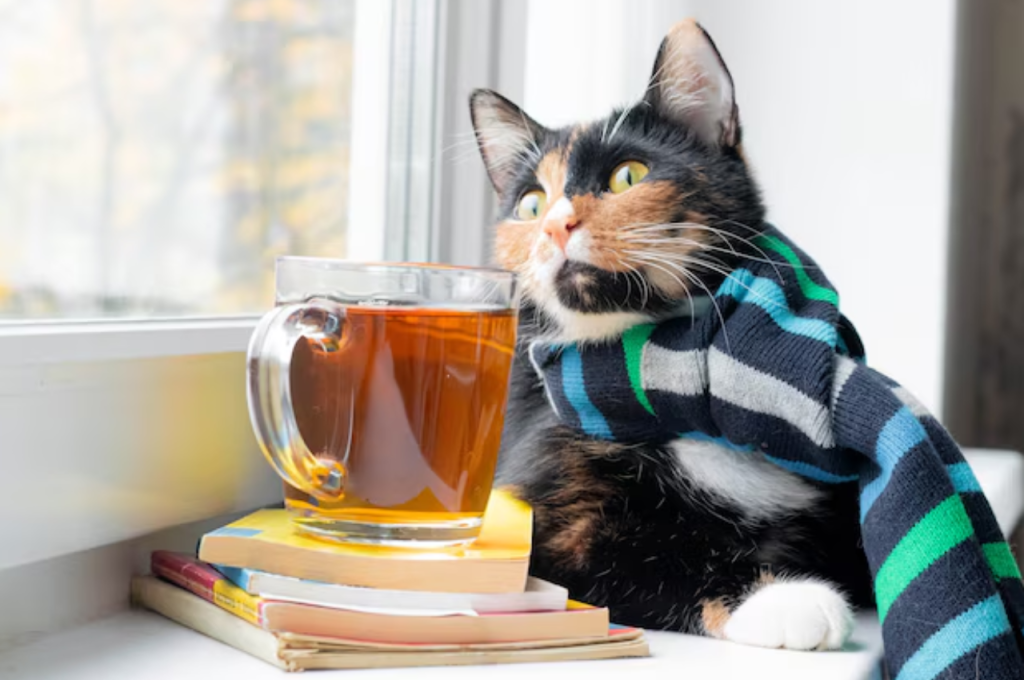Yes, cats can drink tea in moderation, but some teas like green tea can be harmful to them. Teas with caffeine should be avoided as they can be toxic to cats.
Cats are curious creatures known for their selective eating habits. While some human foods are safe for cats in moderation, others can be harmful to their health. The question of whether cats can drink tea often arises among pet owners.
Let’s explore the topic further to understand which types of tea are safe for cats and which ones should be avoided. Understanding the potential risks and benefits of cats consuming tea can help pet owners make informed decisions for the well-being of their furry companions.
Health Effects of Tea on Cats
Discover how tea can impact a cat’s health and explore whether cats should consume tea. Understand the potential risks and benefits associated with cats drinking tea and how it may affect their well-being.

Caffeine in Tea
Caffeine is a natural stimulant found in tea, known for its ability to increase alertness and energy levels. While humans can safely consume moderate amounts of caffeine, it can be toxic to cats even in small quantities. Cats lack the enzymes to metabolize caffeine efficiently.
Potential Toxicity
Prolonged or excessive consumption of tea can lead to organ damage in cats, particularly the liver and kidneys. Chronic exposure to caffeine and other compounds can strain these organs and contribute to long-term health complications.
Digestive Issues
Digestive issues refer to any discomfort or abnormalities affecting the gastrointestinal tract, such as vomiting, diarrhea, abdominal pain, or bloating.
Types of Tea to Avoid for Cats
While offering tea to cats may seem harmless, certain types can be harmful to their health. It’s important to be mindful of the teas you give to your feline friends. Let’s explore the types of tea that you should avoid giving to your cats:
Black Tea
Black tea contains caffeine, theobromine, and other compounds that can be harmful to cats if ingested. Even small amounts of black tea can lead to adverse effects such as restlessness, increased heart rate, tremors, vomiting, diarrhea, and seizures in cats.
Green Tea
Green tea, like black tea, contains caffeine and other compounds that can be harmful to cats if ingested. Even small amounts of green tea can lead to adverse effects such as restlessness, increased heart rate, tremors, vomiting, diarrhea, and seizures in cats.
Herbal Teas
While herbal teas may not contain caffeine, they can still pose risks to cats due to the presence of other potentially harmful compounds or essential oils.
Safe Alternatives to Tea for Cats
While it’s important to keep our feline friends hydrated, giving them tea is not a recommended option. Cats have certain dietary restrictions and sensitivities that make it necessary for us to find safe alternatives to tea. Here are some healthier options that will keep your cat happy and hydrated:
Water
Water is the most essential element of a cat’s diet. It keeps them hydrated, aids digestion, and maintains overall health. Make sure to provide fresh, clean water for your feline companion at all times. Consider having multiple water bowls placed around the house to encourage regular drinking.
Cat-friendly Herbal Infusions
Instead of tea, you can offer your cat herbal infusions designed specifically for their consumption. These infusions are caffeine-free and devoid of any additives that may upset their delicate systems. Popular cat-friendly herbs include chamomile, catnip, and mint. These infusions not only provide hydration but can also have soothing effects on your cat’s digestive system and reduce stress.
Homemade Cat Treats
Another alternative to tea is homemade cat treats. You can prepare these using simple ingredients that are safe for feline consumption. Try making treats using chicken or fish, as these are high in protein and loved by cats. Remember to avoid using any harmful additives, such as seasoning or excessive salt. Homemade treats not only provide hydration but also act as a delicious reward for your furry friend.
Signs of Tea Poisoning in Cats
If your cat has consumed tea, it’s crucial to watch out for signs of tea poisoning. It’s important to note that cats are more sensitive to the effects of tea due to their smaller size and unique metabolism. Signs of tea poisoning in cats can be subtle and may vary, so it’s essential to be vigilant and seek veterinary help if you notice any concerning symptoms.

Restlessness and Hyperactivity
Cats experiencing tea poisoning may exhibit restlessness and hyperactivity. This can manifest as an inability to settle down, constant pacing, or an increase in physical activity. If you notice your cat displaying unusual levels of activity, it could be a sign of tea poisoning.
Increased Heart Rate
Another telltale sign of tea poisoning in cats is an increased heart rate. This can be observed through vigorous or fast heartbeats, palpitations, or visible chest movement. It’s important to be aware of changes in your cat’s normal heart rate, especially if they have ingested tea.
Vomiting and Diarrhea
Cats may experience vomiting and diarrhea as a result of tea poisoning. These symptoms can be distressing for your pet and may indicate a potential toxicity. Keep an eye out for any sudden onset of gastrointestinal distress and seek veterinary assistance promptly.
Steps to Take if Your Cat Drinks Tea
If your cat has ingested tea, it’s crucial to take immediate action to minimize any potential harm. Here are the essential steps to follow if your feline friend drinks tea:
Assess The Situation
- Check the type and amount of tea consumed.
- Look for signs of distress or abnormal behavior.
- Keep any tea bags or loose leaves away from your cat.
Contact Your Veterinarian
If your cat has consumed tea, contact your veterinarian without delay. Provide them with details regarding the tea type, quantity consumed, and your cat’s current state. With this information, your vet can offer tailored advice based on your cat’s situation.
Monitor Your Cat’s Symptoms
- Observe your cat for any unusual behavior or physical symptoms.
- Document any changes in appetite, energy levels, or bathroom habits.
- Remain vigilant and seek further veterinary assistance if necessary.
Preventing Tea Consumption By Cats
While cats are known for their curious nature, it’s important to protect them from potential hazards such as drinking tea. Although small amounts of certain herbal teas may be safe, most teas contain substances like caffeine and theobromine, which are toxic to cats. To keep your feline friend safe, there are several preventative measures you can take. Here are two essential steps to ensure that your cat doesn’t have access to tea:
Secure Tea Bags and Loose Tea
To safeguard your cat from inadvertently consuming tea bags or loose tea, it is crucial to store them securely. Cats have a knack for rummaging through cupboards and causing mischief, so taking precautions will help prevent any accidents or ingestion of harmful substances.
| Precautions | Action Steps |
| Keep tea bags out of reach | Store them in sealed containers or high cupboards, away from your cat’s reach. |
| Secure loose tea | Place loose tea in airtight containers and ensure they are stored safely, out of your cat’s sight and reach. |
Store Tea in A Safe Place
In addition to securing tea bags and loose tea, it’s crucial to store all tea-related items in a safe place. This includes tea leaves, tea infusers, mugs, and teapots. By doing so, you can prevent your curious cat from accidentally knocking things over or causing a mess.
- After use, rinse tea-related items:
- Use a gentle detergent to clean them thoroughly and ensure no residue remains.
- Store clean items in a designated area:
- Place them in a high cupboard or store them away in a closed drawer to prevent your cat from accessing them.
Educate Family and Visitors
When it comes to the safety of your cat, it’s important to educate your family members and visitors about the potential dangers of tea consumption. Many people may not be aware that tea can be harmful to cats, so spread the knowledge and create awareness to ensure everyone is on the same page.
Some key points to communicate include:
- Tea is toxic to cats:
- Explain that even small amounts of certain teas can be harmful to cats due to the presence of caffeine and theobromine.
- The importance of proper tea storage:
- Emphasize the need to keep tea bags, loose tea, and tea-related items in a secure location to avoid accidental ingestion by cats.
- Keep tea away from your cat:
- Advise family members and visitors to be cautious when enjoying tea, ensuring cups are safely out of your cat’s reach.
By implementing these preventative measures and educating those around you, you can ensure your beloved feline friend is protected from the potential hazards of tea consumption. Remember, a small proactive effort can go a long way in keeping your cat safe and healthy.
Common Misconceptions About Cats and Tea
There are common misconceptions about cats and tea, and one of them is whether cats can drink tea. It’s important to note that cats should not consume tea at all, as it contains caffeine and other compounds that can be harmful to them. It’s best to stick to providing fresh water for your feline friend’s hydration needs.

Tea as A Home Remedy for Cats
Tea should not be given to cats as a home remedy for any feline illness due to its caffeine content.
Tea as A Source of Hydration
Tea contains caffeine and other compounds that can be harmful to cats, making it unsuitable for feline consumption. Cats should primarily drink water for hydration.
Tea’s Effect on A Cat’s Coat
Tea does not have a beneficial effect on a cat’s coat. Cats are sensitive to certain substances, including caffeine found in tea, which can be harmful. There are common misconceptions about whether cats can safely drink tea. Tea is not suitable for cats due to its caffeine content.
Conclusion
To sum up, while tea may be a soothing and enjoyable beverage for humans, it is not recommended for cats. The caffeine and other compounds in tea can adversely affect their health. It is essential to prioritize their well-being by providing them with a balanced diet and appropriate hydration options.
Opt for cat-friendly alternatives like water and specially formulated feline drinks to keep your furry companions happy and healthy.
